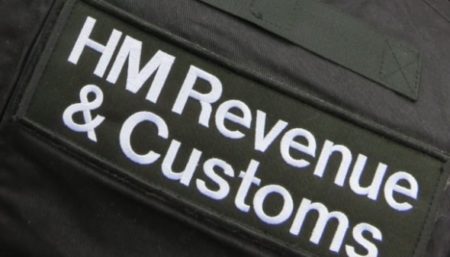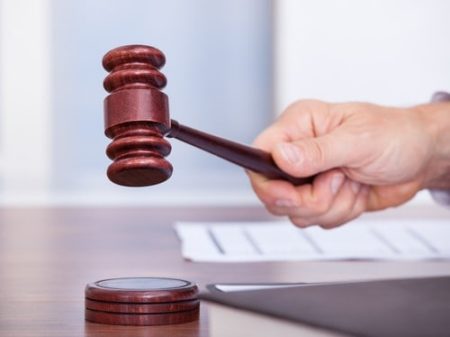EXCLUSIVE: Max Recycle has been denied permission to appeal a 2016 ruling which stated that VAT exemptions provided to local authorities for waste collections were not anti-competitive.
The rejection was handed down by Mr Justice Nugee at the Upper Tribunal Tax and Chancery Chamber, earlier this month (June 8).

The case centres on HMRC’s decision to allow VAT exemptions for local authorities for private sector waste collections
Justice Nugee’s ruling means that Durham-based Max Recycle can now choose to apply to the Court of Appeal, which is able to decide whether there is a case where the matters should be allowed to proceed to appeal.
It is believed that as part of its bid to find the VAT exemption anti-competitive, Max Recycle will also explore a state aid case under the EU’s Treaty of Rome, which generally prohibits state aid unless “it is justified by reasons of general economic development”.
State aid is defined by the European Commission as “an advantage in any form whatsoever conferred on a selective basis to undertakings by national public authorities”.
Background
This month’s ruling was in relation to a decision in September 2016, where a judge dismissed a legal challenge to overturn VAT exemptions for councils in England who provide trade waste collections (see letsrecycle.com story).
In his ruling, Mr Justice Warren made clear he considers councils have ‘no power’ to provide trade waste collections on a commercial basis other than through a company in accordance with section 95(1) of the Local Government Act 2003.
However, he added authorities do have a provision to carry out the service in exercise of the powers conferred by section 45(1)(b) of the Environmental Protection Act 1990.
The judge continued to say he had “no doubt” that section 45(1)(b) was a “special legal regime” by which councils are obliged to arrange commercial collections if requested by an occupier of premises and doso for a reasonable charge.

Justice Nugee said he had “great difficulty in understanding” how local authorities are acting outside of their duties as waste collectors
Decision
Justice Nugee outlined when deciding against the appeal this month, that the proposed appeal would “raise some important point of principle or practice, or a compelling reason for the relevant appellate court to hear the appeal”.
He stated that despite HMRC’s admission that the appeal does raise important points and practice, “permission should not as a matter of practice be granted unless the appeal has a real prospect of success”.
Mr Christopher Nugee went on to examine the likelihood of success, and explained that he had “great difficulty in understanding” the point raised by Max Recycle that local authorities are acting outside of their duties as waste collectors, and actually as a private business.
In the original 2016 ruling, Mr Justice Warren ruled that local authorities are obliged to arrange commercial collections if requested by an occupier of premises and does so for a reasonable charge, and they are not acting as a business.
Justice Nugee agreed in this month’s ruling, explaining that it is a “possible response” to the section 45 duty for a waste collection authority to enter into a contract to collect waste it is obliged to, as opposed to waiting until each request comes through individually.
“There is nothing incompatible with section 45 for the local authority to specify in the contract the reasonable charge that it proposed to charge under that contract,” Justice Nugee stated.

South Norfolk council, which has its headquarters in Long Stratton (pictured) is an example of one authority that promotes the benefits of not levying VAT. It tells prospective commercial waste customers: “We are able to offer VAT free commercial waste and recycling services within South Norfolk, so your business will benefit from saving the 20% VAT.” Picture: Ian Robertson, geograph.org.uk
He therefore added that on this ground, there is not a likelihood of success if there was an appeal.
Ground 2
The second of the three rounds of Max Recycle’s appeal related to the “special legal regime”, which is what provided local authorities with a VAT exemption by HMRC in 2011.
Max Recycle explained that even if the original decision is correct, the Upper Tribunal erred in law in deciding that authorities providing such supplies were doing so under a “special legal regime”.
Just Nugee explained that “there is no real prospect” of challenging this, as Section 45 has a number of constraints, including obligations that charges must be “reasonable”, which the private sector does not have, alongside obligations to collect from any area.
Ground 3
Ground 3 of the appeal stated that the Upper Tribunal erred in deciding that the question of whether a local authority’s trade waste collection services are being provided under a “special legal regime” had properly to be determined on a case by case basis.
“If the VAT exemptions make no difference, and do not provide an unfair advantage, why are local authorities so hell-bent on keeping them?”
Scott Hawthorne
Max Recycle
Justice Nugee said: “I do not regard Ground 3 as having a separate life from Grounds 1 and 2, and having rejected the proposed challenges in Grounds 1 and 2, I think it must follow that Ground 3 will also fall into the category of grounds with no reasonable prospect of success.”
He then refused permission to appeal, and left it “to the Court of Appeal to decide whether this is a case where, contrary to my views, the matters should be allowed to proceed to appeal.”
Reaction
Speaking with letsrecycle.com, Scott Hawthorne, managing director of Max Recycle, explained what the next steps are for the company.
“We are disappointed with the ruling, as we previously had a different judge write to us to basically ask where we were at, and she seemed to identify problems with the initial order and we thought we would have a case. It turns out she was not available on the day of our hearing,” he explained.
Mr Hawthorne added: “I think the main thing from the case, which seems to be missed really, is that if the VAT exemptions make no difference, and do not provide local authorities with an unfair advantage, why are local authorities so hell-bent on keeping them?”
HMRC
A spokesperson for HMRC said they are unable to comment “while proceedings are ongoing”. However, HMRC’s internal manual explains the situation as:
” As well as the normal weekly household collections, domestic waste includes special arrangements for bulky items and garden material. The waste collection authority has a duty to arrange for the regular collection of domestic waste for which it cannot make a charge as the cost is covered by the Council Tax. Special collections must be undertaken at the request of a householder but the authority can charge for the service.
“It is common for local authorities to contract out normal and special collections to a private-sector waste-collection company. The contractor’s services are supplied to the authority rather than to the householder. Therefore any charges for special collection services, even if the contractor collects and retains the payment from the householder, relate to a non-business activity of the authority. However, payments that are retained by the contractor form part of the consideration for its standard-rated supply to the authority.
The authority may make related supplies for which it charges. For example the provision of special dustbins necessary to fit the collection vehicle, or specially marked rubbish sacks. These are also non-business except when the local authority sells standard unmarked bags, which are standard rated.”
The post Court rules against VAT exemptions appeal appeared first on letsrecycle.com.
Source: letsrecycle.com Waste Managment



